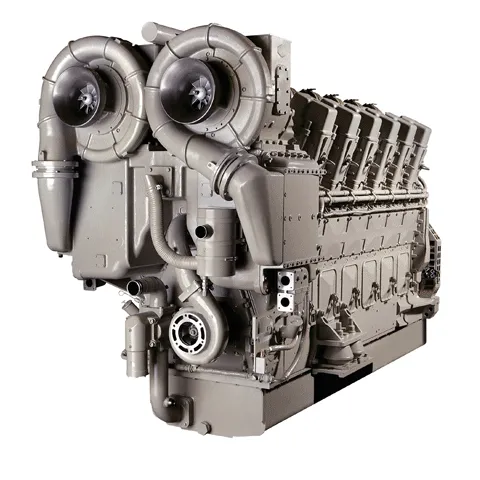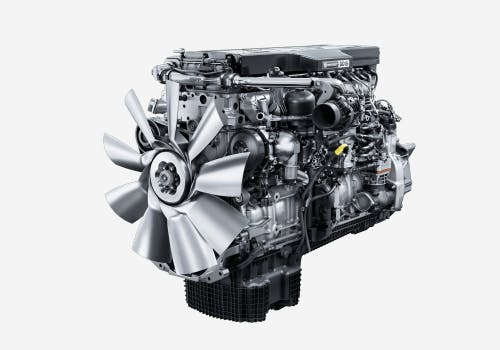Discover Sturdy and Effective Products from Engines For Africa
Discover Sturdy and Effective Products from Engines For Africa
Blog Article
A Full Overview to Picking the Right Engine for Your Job
Picking the proper engine for your job is an important choice that can considerably impact its general success. Each of these aspects plays a pivotal function in ensuring that your chosen engine not only fulfills prompt purposes however also aligns with long-term ambitions.
Define Your Project Demands
Specifying your task needs is an essential step in selecting the proper engine for effective implementation. A detailed understanding of your task's objectives will assist you in determining the capacities and attributes needed from an engine. Begin by detailing the extent of your task, including the desired functionality, target market, and the specific end results you aim to accomplish.
Next, consider the technical demands that straighten with your job objectives. This consists of reviewing the compatibility of the engine with existing systems, in addition to the programming languages and frameworks that will certainly be made use of. Furthermore, examine the degree of scalability called for to fit future growth or changes popular.
Budget constraints also play a crucial function in defining your job needs. Develop a clear monetary structure to direct your decision-making process, making sure that the engine chosen fits within your budget plan while giving the needed capability.
Evaluate Efficiency Demands

Following, think about the scalability of the engine. Evaluate whether it can take care of increased workloads as your project expands. Engines that sustain straight scaling are frequently preferable for larger applications. Furthermore, examine the engine's performance under various conditions, such as peak usage circumstances, to guarantee it meets your reliability criteria.
Consider Convenience of Usage
While technical requirements are essential, the simplicity of use of an engine can considerably affect the development process and overall project success. An intuitive interface, clear documentation, and streamlined workflows can considerably reduce the learning curve for developers, enabling them to focus on creativity and problem-solving instead than grappling with complex tools.
When evaluating an engine's convenience of usage, think about the onboarding experience. A well-structured intro, total with tutorials and example tasks, can facilitate a smoother shift for new users. In addition, the clarity and comprehensiveness of the engine's paperwork play an important function; extensive guides and API references can equip designers to troubleshoot and carry out attributes effectively.
An additional facet to think about is the engine's personalization abilities. An engine that allows for simple modifications can be extra user-friendly, as developers can customize it to fit their particular requirements without considerable trouble. Last but not least, evaluate the process integration with systems and tools you already utilize. A natural ecological community can enhance productivity and decrease friction during the development procedure. Inevitably, choosing an engine that focuses on simplicity of use can bring about an extra delightful and productive advancement experience.
Assess Community and Support
The stamina of an engine's community and assistance network can substantially influence a programmer's best site experience and success. A lively neighborhood typically indicates a wealth of common knowledge, resources, and repairing assistance that can boost your project's development procedure. When evaluating an engine, take into consideration the dimension and task level of its area. Larger areas usually offer a lot more online forums, tutorials, and third-party plugins, making it possible for programmers to locate remedies a lot more successfully.
Additionally, assess the schedule of main assistance networks. Trustworthy documents, responsive consumer support, and routine updates are necessary for resolving technological issues and maintaining your job on track. Engines For Africa. Energetic neighborhoods likewise promote partnership, offering opportunities for networking and comments, which can be invaluable, particularly for independent designers or little teams
Furthermore, explore the existence of community-run occasions, such as hackathons or meetups. These gatherings can enhance your understanding of the engine while connecting you with seasoned customers and possible partners. In recap, a you can try here durable community and support system not only improve advancement but likewise create a setting for learning and advancement, ultimately improving the chance of your job's success.
Compare Cost and Licensing Options
Spending plan considerations play a vital function in picking the appropriate engine for your project, as the cost and licensing options can considerably impact both temporary expenditures and long-lasting practicality. Engines For Africa. Different engines supply differing pricing structures, which can consist of single acquisition charges, membership versions, or revenue-sharing agreements based on your job's profits

Licensing alternatives likewise differ considerably. Some engines are open-source, supplying versatility and community-driven assistance, while others may need proprietary licenses that restrict usage and distribution. Comprehending the ramifications of each licensing version useful reference is important, as it impacts ownership rights, future scalability, and potential lawful commitments.
Final Thought
In verdict, selecting the ideal engine for a project requires a detailed evaluation of defined job demands, efficiency demands, simplicity of usage, area assistance, and cost factors to consider. By systematically addressing these important elements, decision-makers can guarantee placement with both current and future project needs. A knowledgeable selection inevitably boosts the probability of job success, making it possible for reliable resource allotment and taking full advantage of possible end results within the specified monetary restraints.
Choosing the suitable engine for your job is a vital decision that can considerably impact its total success.Defining your task needs is an essential action in picking the appropriate engine for successful application. A detailed understanding of your task's goals will guide you in recognizing the capabilities and functions called for from an engine.When you have a clear understanding of your job requires, the following step is to evaluate the efficiency requirements of the engine.In final thought, selecting the proper engine for a job necessitates an extensive assessment of specified project requirements, performance needs, ease of use, community assistance, and cost considerations.
Report this page